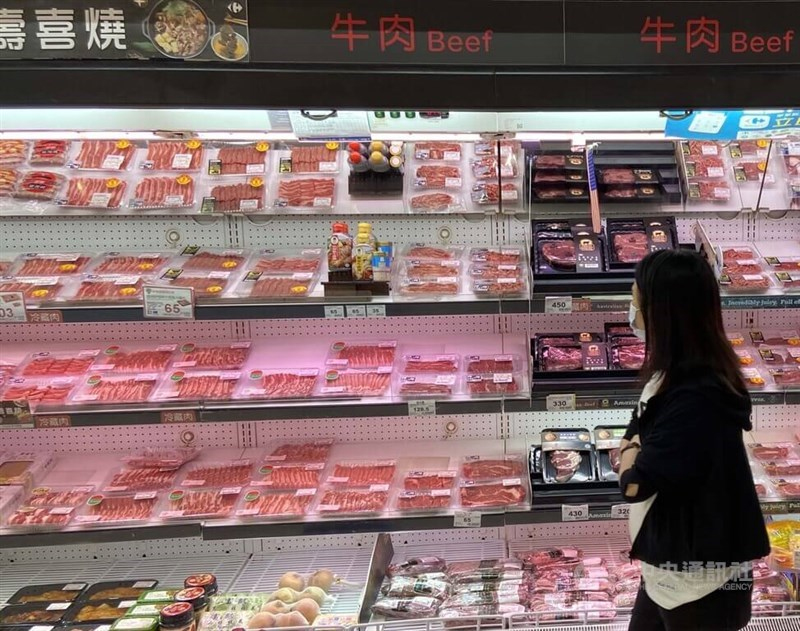In a significant development for Taiwan’s food import regulations, the Taiwan Food and Drug Administration (TFDA) has proposed allowing the importation of Japanese beef products from cattle of all ages, signaling a potential shift in Taiwan’s beef import policies. This change follows discussions that have been ongoing since March, with the government seeking to gather public opinion before implementing new regulations. Despite the conclusion of the 60-day public consultation period on May 5, 2025, Taiwan has yet to finalize a timeline for the policy change.
A Step Forward in Taiwan’s Beef Import Regulations
Currently, Taiwan restricts the importation of Japanese beef to cattle no older than 30 months. These strict regulations were introduced in 2003 in response to the global Bovine Spongiform Encephalopathy (BSE) or mad cow disease crisis, which had raised serious health concerns globally. While these measures were critical in preventing the spread of the disease, the international context has evolved significantly over the last two decades.
Global Context: Many Countries Already Allow Japanese Beef Imports
Over 30 countries worldwide, including the United States, Canada, Australia, New Zealand, and the European Union, have lifted similar restrictions on Japanese beef imports, allowing products from cattle of all ages. This global trend has been driven by the fact that Japan has not had a reported case of mad cow disease for more than 15 years, and the beef has been deemed safe by international health standards.
The World Organization for Animal Health (WOAH) has classified Japanese beef as safe as beef from the United States and Canada, both of which have been allowed to export beef of all ages to Taiwan since 2021 and 2023, respectively. In light of this, Taiwan’s decision to open its market to Japanese beef products of all ages is likely in alignment with global practices, ensuring the island’s beef trade remains competitive in the international market.
Scientific Analysis and Safety Measures
TFDA Director-General Chiang Chih-kang emphasized that the decision to lift the restrictions will follow international standards for food safety. Importantly, a study on higher-risk boned beef products suggests that only one in 150 million consumers would be at risk of exposure to Creutzfeldt-Jakob Disease (CJD), a rare human condition linked to mad cow disease. This low probability has been a key factor in reassuring public health experts that the benefits of opening the beef market outweigh the risks.
Ongoing Discussions and the Path Forward
Although the proposal to lift the age restrictions on Japanese beef imports aligns Taiwan with international trends, Chiang clarified that further discussions will be necessary. These will include consultations with experts from various fields to ensure a gradual and safe rollout of the new regulations. Experts will also weigh in on the best way to implement safety protocols and additional testing mechanisms for beef products.
TFDA officials have been careful to avoid rushing the process. They have stressed that the health and safety of Taiwanese consumers remain the top priority. While public consultation has ended, the timing of when the policy will officially be implemented will depend on these further deliberations. This is to ensure that Taiwanese consumers can be confident in the quality and safety of the beef products entering the market.
The Economic and Diplomatic Significance of the Policy Change
This policy change has implications not only for Taiwan’s domestic food market but also for its diplomatic and trade relations with Japan. Allowing Japanese beef into the market is seen as a positive step in Taiwan’s overall economic and trade relationships with Japan, showcasing Taiwan’s willingness to align with international practices while ensuring safety standards are upheld.
Additionally, Japan’s agricultural industry stands to gain from this shift, as it would open up a new, potentially lucrative market for their beef exports. For Taiwan, this move reflects its commitment to maintaining food security while balancing international trade agreements and maintaining public health standards.
Conclusion: A Delicate Balance
Taiwan’s careful approach to the potential lifting of restrictions on Japanese beef imports highlights the delicate balance between promoting trade and protecting public health. The Taiwanese government is moving cautiously, ensuring that it can maintain the trust of its citizens while ensuring its place in the global food trade. With the continued absence of BSE in Japan and the scientific evidence supporting the safety of Japanese beef, it seems likely that the policy change will move forward, though the exact timing remains uncertain.
FAQs
Why has Taiwan restricted Japanese beef imports?
Taiwan introduced restrictions on Japanese beef in 2003 due to concerns over Bovine Spongiform Encephalopathy (BSE), or mad cow disease. These restrictions limited beef imports to cattle no older than 30 months.
What is the new proposed change?
Taiwan plans to allow beef imports from Japan regardless of the cattle’s age, following global standards that recognize Japanese beef as safe.
Why is Taiwan considering lifting the restrictions now?
Japan has not reported a case of mad cow disease in over 15 years, and international organizations such as the World Organization for Animal Health (WOAH) have categorized Japanese beef as safe.
When will the new regulations be implemented?
The timeline for implementing the new regulations has not been set, as the government is continuing discussions with experts and stakeholders to ensure a gradual and safe process.
What are the potential benefits of this policy change?
This change would allow Taiwan to align with international standards, foster better trade relations with Japan, and ensure access to safe, high-quality beef products.


